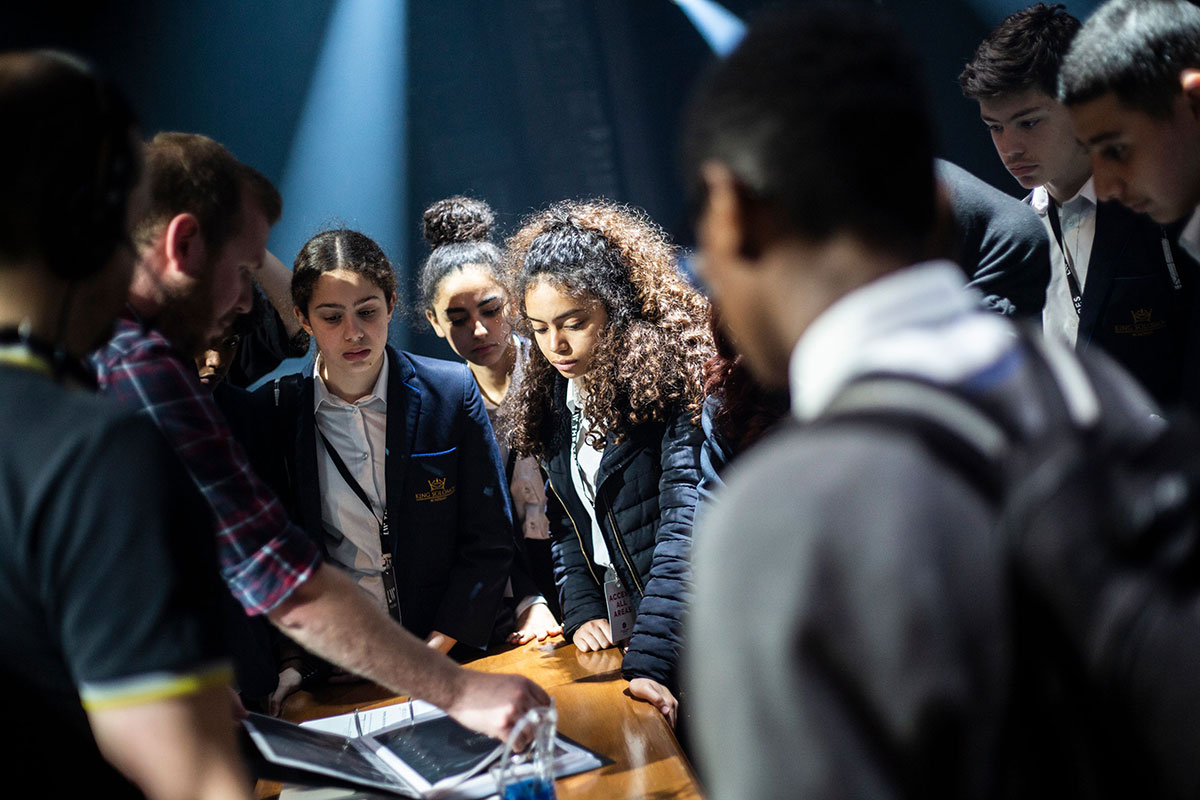A new scheme is being launched to ensure 15 new commissions for playwrights across England in 2022. The scheme will be launched in April 2022 with online submissions open at http://www.writersguild.org.uk/npcs.
The New Play Commission Scheme (NPCS), led by WGGB in partnership with HighTide Theatre, UK Theatre and the Independent Theatre Council, has been designed to respond to the decline in new theatre commissions during the COVID-19 pandemic.
Research demonstrates that the pandemic has been devastating for playwrights. A survey of UK Theatre members and other theatres revealed that new commissions have declined by a third between 2019-20 and 2020-21. A poll of WGGB members found that 74% of playwrights had lost income due to the pandemic – representing 40% of their annual earnings – and that 50% believed they would not be working in theatre in two years’ time. The NPCS will address the loss of new voices from under-represented groups and writers based outside of London (see notes to editors).
The scheme has been generously supported by Arts Council England and Society of London Theatre (SOLT) and UK Theatre, through the Theatre Development Trust; and has raised over £50,000 in donations from major producers, actors, and writers, including the Mackintosh Foundation, Neal Street Productions, Sonia Friedman Productions; director and producer Stephen Daltry CBE; and playwrights Lucy Kirkwood, Caryl Churchill, Jack Thorne, Alan Bennett, Lee Hall, Laura Wade, Bryony Lavery and Sir Tom Stoppard. Faber have made a generous donation and will also award an additional £5,000 to the best play by an unpublished writer, which – if produced – will also be published.
The scheme is still accepting donations and will increase the number of commissions available if funding allows. Organisations and individuals wishing to donate to the scheme should contact admin@writersguild.org.uk
Ellie Peers, General Secretary of the WGGB, said, “The last two years have brought immense challenges to playwrights and have stopped many promising careers in their tracks. The New Play Commission Scheme will bring writers and theatres together to produce new work under fair and equitable terms. We are hugely proud to be a part of this scheme.”
Supporting Quotes:
David Edgar, award-winning playwright, former President of the WGGB and architect of the scheme, said, “Our extraordinary times should inspire a golden age of new playwriting, not least by playwrights from communities which have hitherto been under-represented. Without positive encouragement for commissioning new plays now, great plays on great themes may be lost. The aim of the scheme is to prevent that happening.”
Suba Das, Artistic Director of HighTide and Creative Director Designate of Liverpool Everyman and Playhouse, said, “It’s the most stunning testament to HighTide’s work supporting playwrights to be invited by the WGGB to deliver this incredible new commissioning scheme, which not only offers a lifeline to both writers and companies across the UK but helps ensure new writing forms part of how we all move forwards as citizens and communities.”
Charlotte Jones, Chief Executive Officer of Independent Theatre Council, said, “ITC is delighted to work with the Writers’ Guild in making this much-needed project happen. New writing is the lifeblood of the independent sector, and we recognise that freelance writers have been particularly hard hit by the pandemic. We look forward to enabling an exciting new tranche of writers to realise their potential this summer.”
Jon Gilchrist, Joint President of UK Theatre, said, “COVID-19 had an immediate impact on the theatre industry internationally, but the long-term challenges are just as stark. The number of new play commissions across the country has dropped significantly. The New Play Commission Scheme will help breathe new life into playwriting and support a new generation of playwrights.”
Jack Thorne, playwright, screenwriter, WGGB member and recipient of the union’s recent Outstanding Contribution to Writing Award, said, “There is no doubt that, with theatres under threat, the responsibility for securing the future of diverse playwriting needs to be taken on by all of us. It’s amazing the WGGB have stepped in with the NPCS, a vital ingredient for all our futures.”
April de Angelis, playwright and member of the NPCS selection panel, said, “I’m delighted to be a member of the selection panel for the New Play Commission Scheme. The scheme is an excellent initiative that will encourage theatres to continue to find and produce diverse voices so that our stages are fully inclusive and represent our society, fully allowing us to all experience a wealth of plurality in dramatic writing.”
Vicky Featherstone, Artistic Director of Royal Court Theatre, said, “This truly is the writer’s commission scheme. Created and in part funded by writers for writers – this is a brilliant opportunity for playwrights to work with an organisation towards a play which will be produced. More than ever we need these paid opportunities for writers to tell the vital stories of now, for theatres to take the plunge with new work and for audiences to be transformed by work in which they see themselves and their concerns reflected in every way.”
Dinah Wood, Editorial Director, Drama at Faber, said, “New writing is the lifeblood of Faber’s drama list, which sprang into life thanks to John Osborne’s incendiary Look Back in Anger well over sixty years ago. And so I’m thrilled that Faber should be part of this inspired scheme. Unpublished playwrights from across the land are eligible for the Faber Prize and I cannot wait to hear what they have to say.”
The Writers’ Guild of Great Britain (WGGB)is a trade union representing writers for TV, film, theatre, radio, books, comedy, poetry, animation and videogames. It negotiates national agreements on pay and conditions with key industry bodies, including BBC, ITV and Pact; the Royal Court, National Theatre and Royal Shakespeare Company. It campaigns and lobbies on behalf of writers and offers a range of benefits to its members, including free contract vetting, support and advice; events and discounts; free training; a weekly bulletin; a pension scheme and welfare fund. Members include professional and emerging writers and membership starts at £9 per month.
The new play commission scheme (NPCS) will provide grants equivalent to the WGGB commissioning minimum for the type of theatre and/or company commissioning the work. Playwrights will be invited to apply in partnership with a venue or producer. The grant will be conditional on a commitment from the commissioning body to make a second payment at first draft delivery. If the company or producer chooses to accept the play for production, they will also pay the acceptance fee.
The scheme has clear targets for under-represented writers and will ensure that a proportion of all commissions will go to women (50%), playwrights of colour (20%), LGBT+ (12%) and disabled, D/deaf and neurodiverse writers (12%). 60% of the grants will go to productions by companies outside London. 75% of grants will be awarded to writers who have not been commissioned by their co-applicant before.
The selection panel includes playwrights April de Angelis, Gurpreet Kaur Bhatti, Tom Wentworth and Roy Williams, director and playwright Aisha Khan, producer Kate Pakenham and producer and director James Dacre.
Independent Theatre Council is the management association for theatre’s independent sector. They are a community of peers across the UK working in drama, dance, opera and musical theatre, mime and physical theatre, circus, puppetry, street arts and mixed media.
HighTide is one of the UK’s leading new theatre writing companies, with a mission to develop productions and programmes that engage diverse communities with new theatre writing in the East of England. HighTide works in partnership locally and nationally year-round to co-produce and tour productions and celebrate the East of England and is committed to innovation and inclusion to widen engagement and raise the quality of their work.
For further information contact Sarah Woodley, Communications Manager, Writers’ Guild of Great Britain. Email: sarah@writersguild.org.uk






Share: